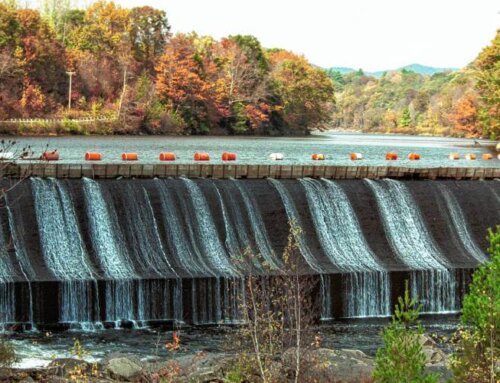Hydroelectric companies are required to provide recreation amenities as compensation for using the public’s water to generate power. Some of FirstLight and Great River Hydro’s current recreation offerings, like the Barton Cove campground, viewing windows at fish ladders, or sites like Herrick’s Cove or Governor Hunt Recreation area, were required as part of their current operating licenses finalized 40 to 60 years ago. As their new licenses are being finalized this year, it is time to ensure the recreational amenities we want developed to support our local economies for the next 50 years are built-in to the new licenses. Unfortunately, these companies have had poor public engagement in this process about recreation offerings, and they are shortchanging the public in their legally required recreation investments for the next 40 to 50 years.
Five hydroelectric facilities on the Connecticut River are renewing their operating licenses under the Federal Energy Regulatory Commission (FERC). Later this summer, the public will have an opportunity to weigh in on terms for these licenses that will impact more than 175 miles of the Connecticut River for the next 40-50 years. These facilities are the Wilder, Bellows Falls, and Vernon dams in VT and NH, and the Northfield Mountain Pumped Storage Project and Turners Falls Dam in MA.
Dams and pumped storage projects have some obvious impacts on rivers and recreation. For example, Northfield Mountain Pumped Storage causes the Connecticut River to flow upstream at times. Other recreation impacts include the barrier a dam represents to boating, water fluctuations upstream and rapid changes in velocity of flows downstream of facilities, diverting most of the river through a canal, the creation of lakes upstream of a dam, and private land and water rights along a project’s area. Under the Federal Power Act, FERC is required to give “equal consideration” to non-development interests, including “protection of recreational opportunities.” Hydro companies need to address these impacts on recreation while also updating their recreation offerings to reflect current needs and desires.
In December, FirstLight included a “final” Recreation Management Plan in their amended final license application, which was developed with no input from the public. Great River Hydro didn’t include any plan in their amended final license application, leaving the public with nothing to comment on. FirstLight is proposing to formalize a few new access locations and provide a long-overdue upgrade at the Poplar Street launch in Montague, MA. But, let’s think more creatively about what could be offered and enhanced. In today’s world, we have the Americans with Disabilities Act, we are experiencing climate change, we must ensure equitable access to nature, we have different recreational interests, and, after a year of experiencing a worldwide pandemic, people have “rediscovered” the outdoors and have enjoyed and embraced all the region has to offer. The public deserves more than these meager or non-existent proposed recreation improvements.
FirstLight has been spending just under $1 million/year at Northfield Mountain on recreation expenses, according to documents they filed in 2014 and 2008. In mid-March, FirstLight submitted revised tables to FERC indicating it is proposing to spend only $1,000/year and $20,000/year to carry out their proposed Recreation Management Plans for the Northfield Mountain and Turners Falls projects, respectively. This is shockingly low and represents a stunning disinvestment in recreation, from a company that made $158 million in revenue in 2019.
Great River Hydro claims that they invested $170,015 in recreation amenities at the Wilder, Bellows Falls, and Vernon facilities in 2014 and $65,500 at all three in 2008, based on Federal filings. But, in a March filing to FERC, they are proposing to invest an average of only $58,575/year over the next 40 years. This is less than what they claim they have been investing under the previous license and amounts to 0.2% of their stated 2016 revenue of $27.9 million.
Everyone who cares about recreation on and along the Connecticut River needs to get involved to speak up for the river this year. Insist that FirstLight and Great River Hydro make significant investments in recreation for the current and future uses of the river, for the entire 40–50-year life of their new licenses. Learn more at ctriver.org/hydropower and speak up at www.PowerOfWater.fish
This commentary is by Andrea Donlon and Kathy Urffer, who serve as River Stewards for the Connecticut River Conservancy in MA, VT, and NH.







